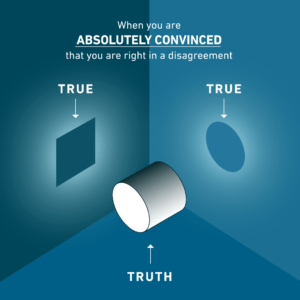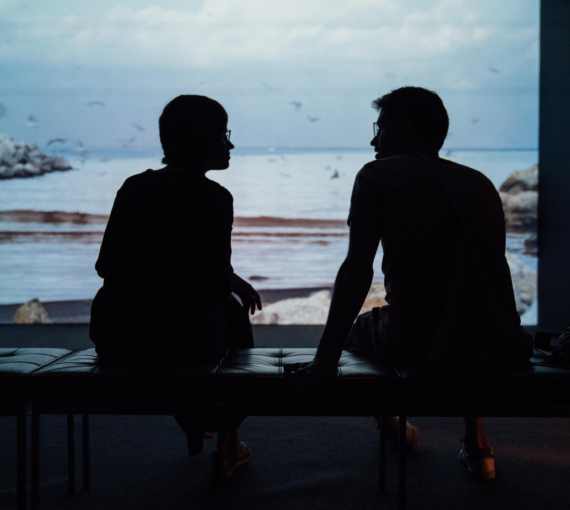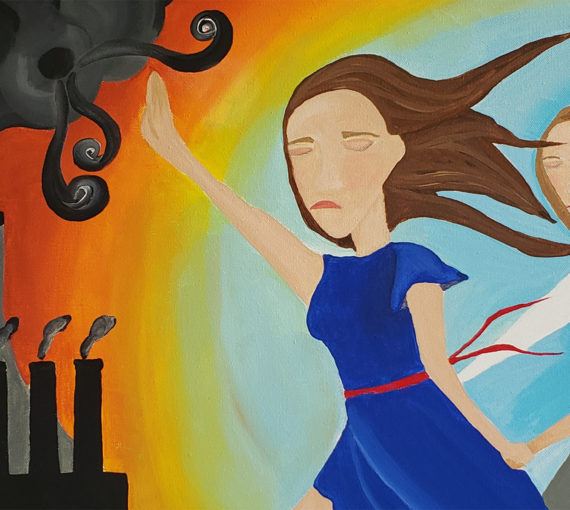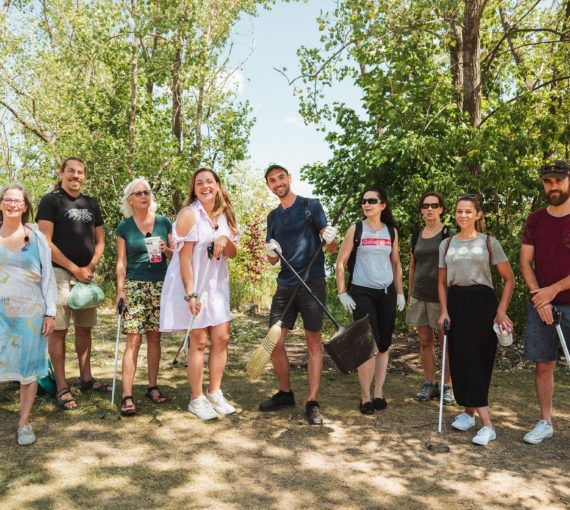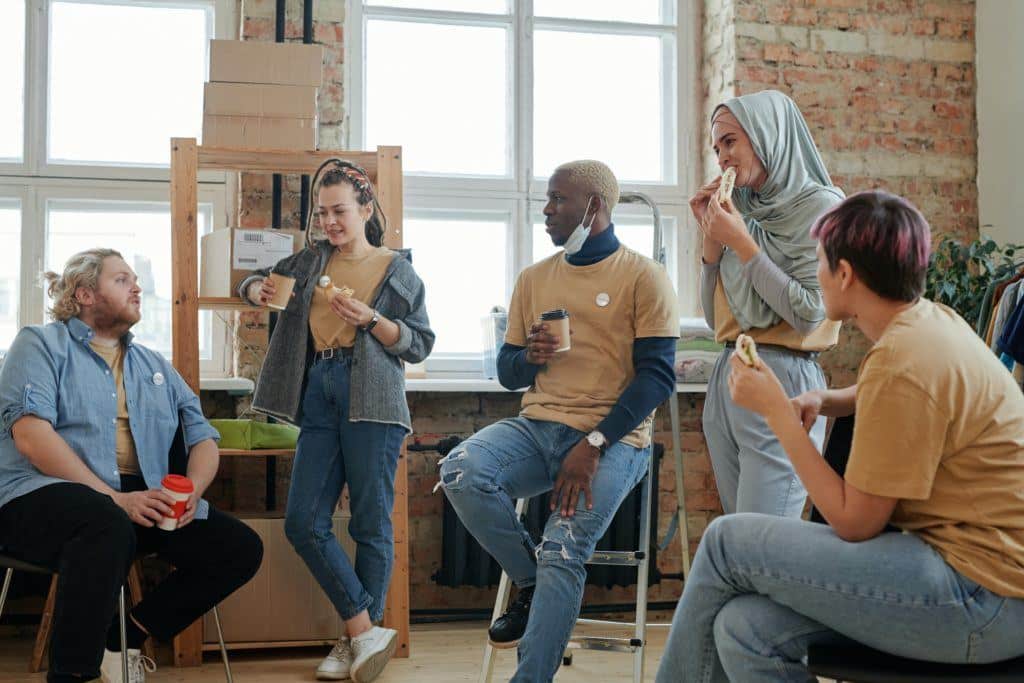
Social psychology shows that when people feel heard, understood and accepted, we are more capable of solving problems, being creative, adaptive and flexible, all skills necessary for climate action. (Photo: Julia M Cameron via Pexels)
You don’t have to look further than Twitter or Facebook to know that societies worldwide are experiencing distressing levels of divisiveness.
Even before this pandemic, we were living with an overwhelming amount of uncertainty, injustice, inequality and instability. COVID-19 only fuelled those fires. Many people are tired, their physical and mental health frayed and their relationships weakened.
There are fractures forming now that aren’t limited to traditional binaries like left and right, progressive and conservative; many of us are experiencing personal fallouts with people we previously saw as like-minded — even close friends and family members. It can be distressing.
“We in the progressive movement have a lot of diversity, diversity of thought, a lot of critical thinking, therefore a lot of disagreement. But there is a difference between disagreement and division. Division is when you allow disagreement to prevent you from building the basis of unity that we need.”
We’re desperate for connection, but so many of our daily interactions are digital and dehumanized, algorithmically pushing us to polarized sides. Instead of sitting around dinner tables hashing out our differences, we fight, unfriend and block.
Transformational change requires mass mobilization
Amid the fracturing, there is broad agreement in the climate movement that transformational change requires us to grow our base, diversify and mobilize the majority of people who care about climate but don’t act.
Since we need to make changes across all sectors and parts of society and in our lives, acting on climate change requires unprecedented collaboration, co-ordination and shared vision.
Reaching a broad spectrum of people requires us to be open and tolerant and to meet people where they are. If we dismiss those who don’t share the ethical or moral “purity” we think we have, if we look down on everyone who has a piece of bacon with breakfast or takes a flight to their sister’s wedding, we’re ruling out most of the “majority” we’re trying to mobilize.
Judging and dismissing closes doors
People in the environmental movement, including me, can be dismissive and quick to judge, and we sometimes approach disagreement with disdain rather than empathy and curiosity.
How can we expect to grow our base if we are intolerant of people who don’t share all of our opinions, beliefs, behaviours and perspectives? Why would people join us if they face confrontation and judgment?
“We have an opportunity to examine our tendency to build organizations that feel more like exclusive clubs for the ‘already woke,’ than they do welcoming spaces for political education and transformation where people feel deeply valued and needed.”
We must strive to understand each other rather than push to be “right,” even when we’re certain our points of view are correct. And we must be more willing to see things from varied perspectives, learn that multiple truths can coexist and admit when we’re wrong or that an alternative idea might work.
Empathetic, non-judgmental listening will help us grow
For a strong movement, we should see diversity of thought and opinion — even on contentious issues like vaccinations or nuclear energy — as a strength, just as diversity strengthens any system. If we want to grow the movement and reach our common goals, we’ll need to work through the things we disagree on with meaningful and compassionate discourse and debate.
“Our aim should not be to change people. Rather, we can support conditions that foster and facilitate change. When people feel heard, listened to, supported — not judged, shamed or blamed, we are so much more capable of solving problems, being creative, adaptive and flexible, all skills necessary for climate action.”
It’s hard to be patient, understanding and open when we’re rundown and tired, and when we’re passionate about an issue and believe a fundamental injustice is occurring. But if we want to build the climate movement during these divisive times, it’s important that we build these skills.
“The key to persuasive political dialogue is creating a safe and welcoming space for diverse views with a compassionate spirit, active listening and personal storytelling.”
~ Karin Tamerius and David Campt
Fight injustice and avoid alienation
Of course, there are limits. We can’t tolerate hate, racism or misogyny, or accept violence or wilful destruction. But we can be fierce advocates for justice and fight for a more equitable, healthier and climate-safe world without laying guilt, blame or shame on the very people we’re trying to engage.
Although we reluctant to admit it, we have our own cognitive dissonance to work through as capitalism, colonialism, patriarchy and racism run deep in our veins. Landing in the right place between “noble defender of justice” and “intolerant with illusions of moral superiority” can be tricky. For guidance on this, I turn to the wise words of a revered Buddhist monk, poet and peace activist:
“Speak the truth but not to punish.” ~ Thích Nhất Hạnh
Find common ground with constructive conversations
How do we have better conversations, especially when there’s so much at stake? Experts say the key is to listen with empathy, ask questions and find shared values — even when there are areas where we disagree.
Discover 10 tips to help you find common ground in difficult conversations about divisive topics.
Centre connection
“Recognizing that there is a deep need in our communities right now for connection, hope, healing, restoration, reconciliation, that can be a cornerstone of community organizing such that we are also building the movement and political power.”
These polarizing times are calling for humility and compassion, for us to genuinely meet people where they are, to develop relationships and trust through listening and sharing stories, and to create a shared vision.
“The invitation from my people is to humble ourselves enough to fall down to the earth and listen differently. Listen to ancestry. Listen to the world around us that we’ve numbed.”
We can learn to stay open and appreciate a diversity of opinion. And above all, we can learn to listen — to each other, to our elders, to our ancestors, to the planet.
If we want transformational social change, we must.
What is one thing we can agree on?
Recently we asked the David Suzuki Foundation community to help us shift the narrative by asking, “What is one thing we can agree on?” Then we listened.
